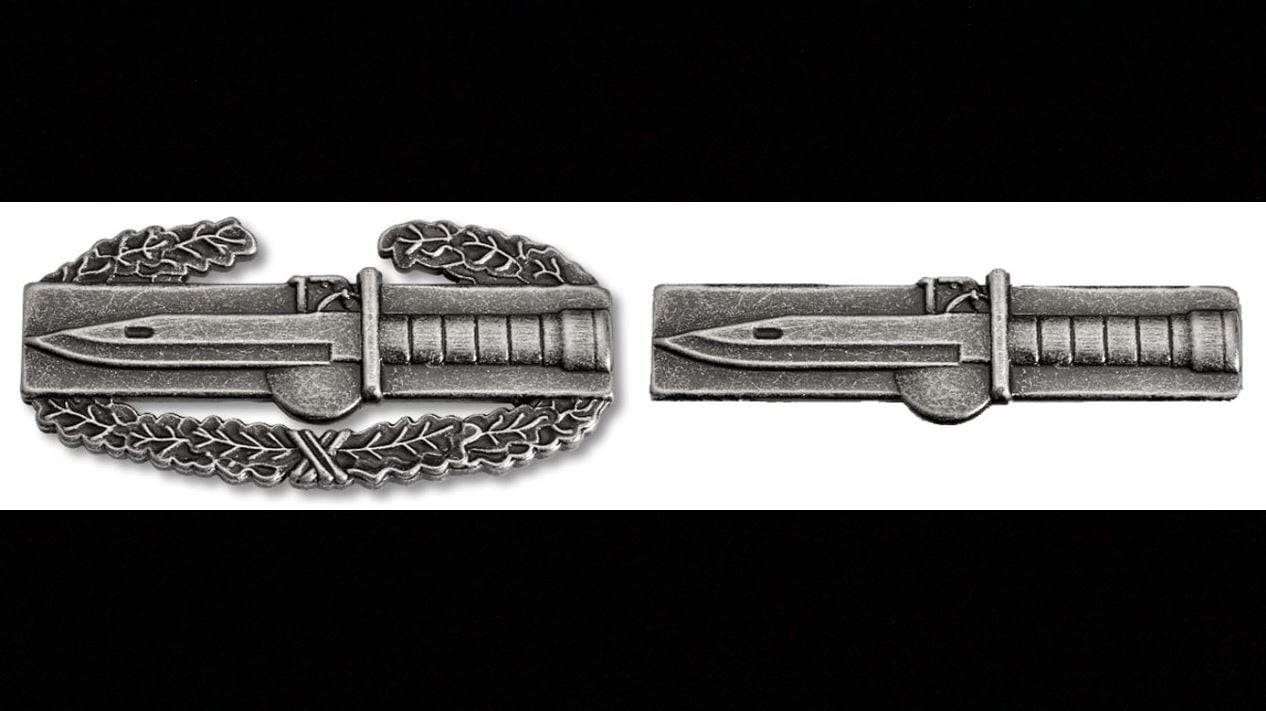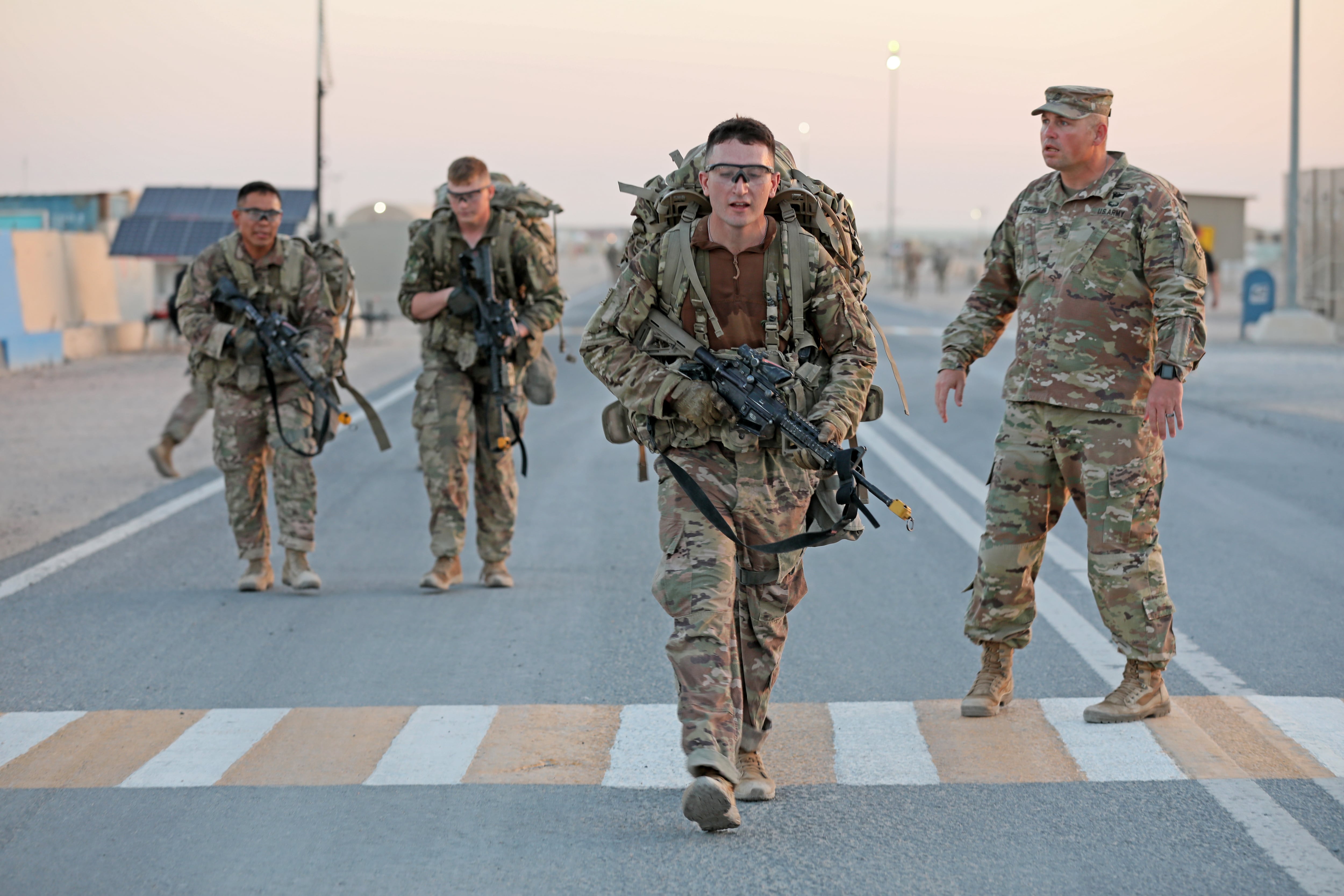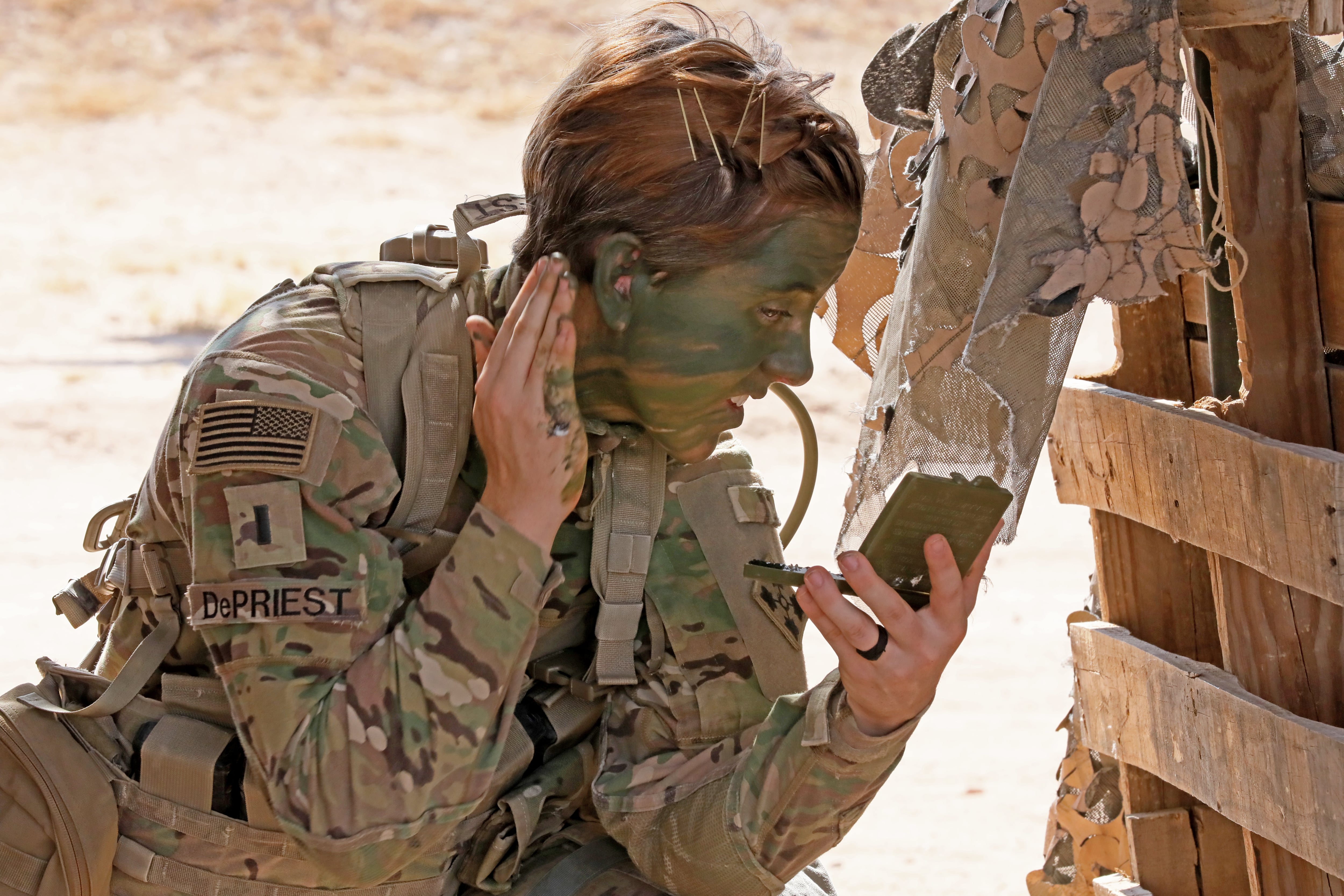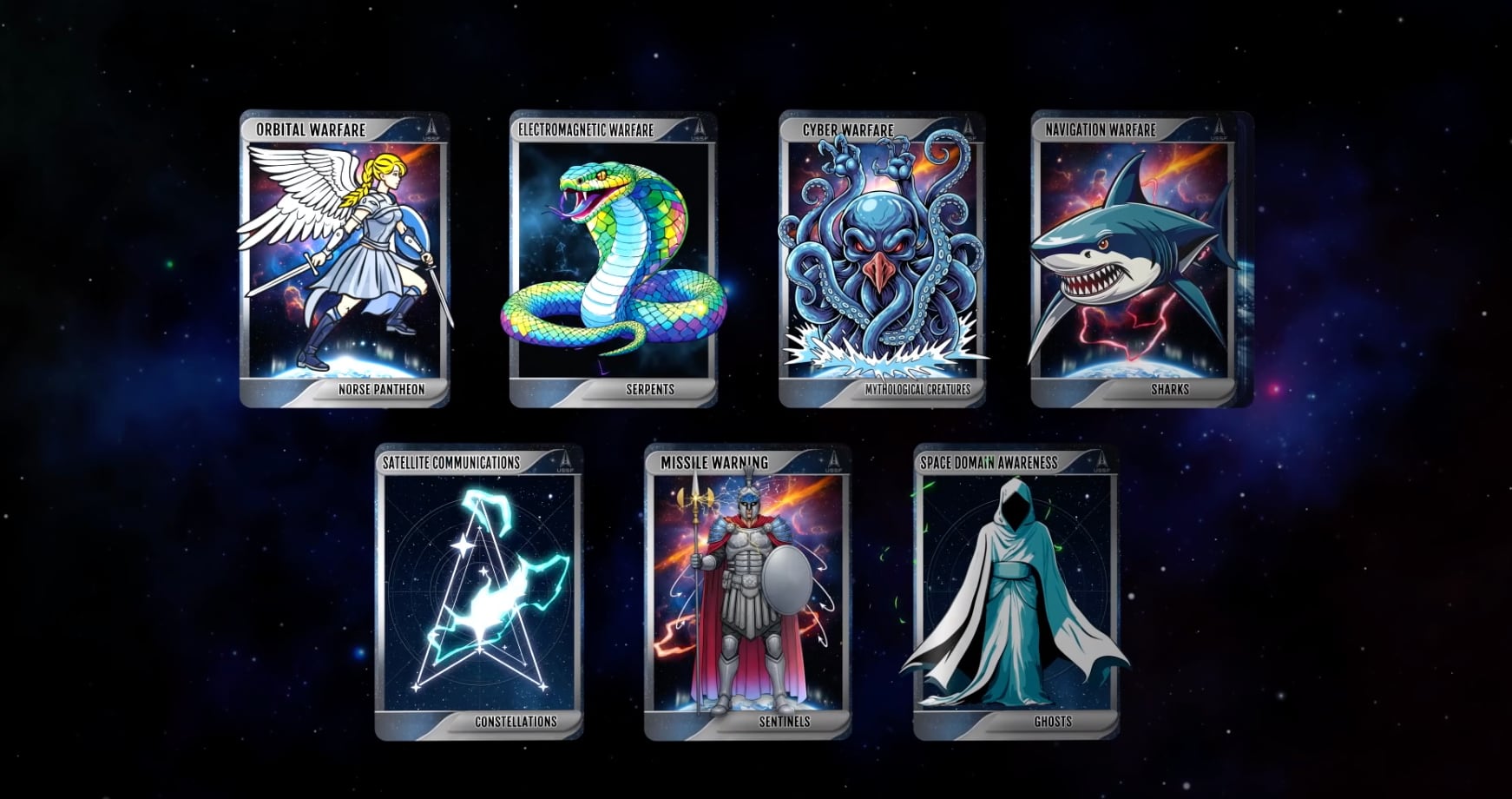As early as October, soldiers could be earning the Expert Soldier Badge — accoutrements targeted at everyone who isn’t an infantryman, combat medic or Special Forces soldier.
The badge will test general soldiering skills, Command Sgt. Maj. Edward W. Mitchell, senior enlisted leader at the Center for Initial Military Training, said in an interview with Army Times. By offering testing and a badge, the Army hopes to provide incentive for units to train their warrior tasks and battle drills while in garrison and during peacetime.
The new badge, which is an initiative of Training and Doctrine Command, will be equivalent to the Expert Infantryman Badge and Expert Field Medical Badge and mirror how those badges test core infantry and combat medic proficiency outside of deployments.
“We wanted every soldier to make sure they understand that they are experts in their field,” Mitchell said. "Achieving the new badge ... requires a much higher standard, just like its cousins, which are the EIB and the EFMB.”
Pass rates during the ESB pilot testing were similar to that of the EIB and EFMB, the Army said in a statement Friday.
“This is not a badge to award so that the entire Army now has an ‘expert’ badge to wear," said TRADOC Command Sgt. Maj. Timothy A. Guden in a service news release provided in advance to Army Times.
“As it is now, not every Infantryman or Special Forces soldier earns the EIB and not every medic earns the EFMB," Guden said. "Keeping with the same mindset, this is a badge to award to those who truly deserve recognition as an expert in their career field.”
Because no soldiers have the new badge yet, testing will be administered early on by soldiers with the other expert badges, since about 80 percent of the tasks will be the same.
It will be up to brigade commanders when to schedule the test, but because most events will be shared between the expert badges, units can run tests for different badges simultaneously.

Testing will first become available between about October and March — the first and second quarters in fiscal 2020. The standards and regulation are expected to be completely finalized by September, but standards will not be adjusted for age, gender or any other criteria, the release said.
The badge will require a five-day testing period. Test events will be based on the warrior tasks and battle drills first introduced at basic training, as well as up to five events selected by the brigade commander from a unit’s Mission Essential Task List.
These could include reacting to an IED attack, marking CBRN-contaminated sites or building a defensive fighting position.
To qualify to take the test, soldiers must pass the Army Combat Fitness Test, qualify as “Expert” on the M4 Carbine or M16 rifle and be recommended by their chain of command. The test will then involve another ACFT, day and night land navigation, individual testing stations and it will end with a 12-mile foot march.

Events will be graded on “go or no-go” completion, but soldiers can still receive a few “no-go’s" and earn the badge.
The idea for the badge first emerged last March, with mixed reactions. Initial reactions from soldiers and veterans were mixed, and Army Times was flooded with nearly 500 reader comments about the move.
The badge was initially introduced as the Expert Action Badge, but was changed to the Expert Soldier Badge during Mitchell’s tenure. The name change was designed to signal the badge’s significance to non-infantry, non-combat medic and non-Special Forces soldiers, who can achieve the EIB and EFMB instead.
Mitchell pushed back hard on the assertion made by some soldiers that the new badge is a participation ribbon — similar to the way some felt about the Combat Action Badge — for soldiers who opted out of the risks of the infantry.
“That is absolutely not the reason why this badge was created," he said. "It’s just like the EFMB and EIB. It’s to find out who is the top 1 percent or 2 percent across the board.”

But Mitchell said the standards for the new badge will limit the number of soldiers able to achieve it, just like the other expert badges, and therefore the badge is not something awarded simply for participating in the Army.
“Every infantry solider does not have an EIB. Every medical soldier does not have the EFMB. And I will guarantee you, every soldier across the force will not have the ESB," Mitchell said.
That doesn’t mean every soldier shouldn’t try. Because, again, the key driver behind the badge is readiness — ensuring soldiers are practicing their basic warrior tasks and battle drills in garrison.
But it also doesn’t mean that every soldier should expect to earn the new badge. The testing is designed to limit recipients and soldiers will not need to earn the badge in order to promote or receive special duties, Mitchell said.
Of course, having the badge won’t hurt a soldier’s promotion package, he added.
Kyle Rempfer was an editor and reporter who has covered combat operations, criminal cases, foreign military assistance and training accidents. Before entering journalism, Kyle served in U.S. Air Force Special Tactics and deployed in 2014 to Paktika Province, Afghanistan, and Baghdad, Iraq.





